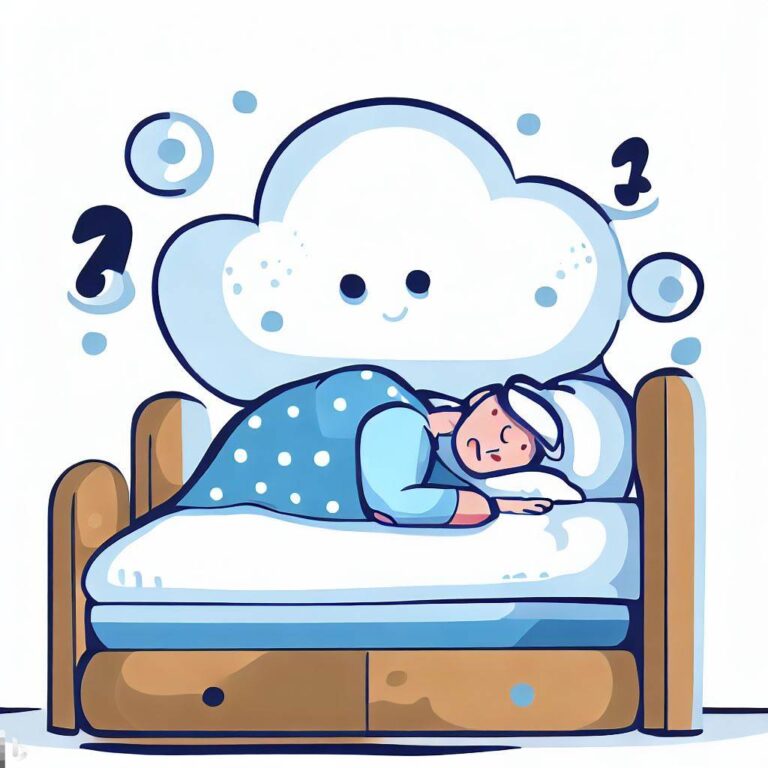Dreaming About Hiding from Someone: Decoding Your Mind’s Secret Messages

Dreams often serve as a mirror, reflecting our deepest anxieties and desires. A common motif among these nocturnal narratives is the sensation of concealment, particularly from a pursuing entity. This experience, while unsettling, taps into the primal instinct of flight over fight. It unveils underlying fears and stressors in one’s waking life, presenting a unique opportunity for introspection and understanding of one’s emotional and psychological state.
I. Introduction
The intricate dance between consciousness and the unconscious mind often blurs the lines in the realm of dreams. Particularly intriguing is the phenomenon where individuals dream of struggling to sleep, a scenario that both perplexes and fascinates researchers and psychologists alike. This article delves into the layers of dreaming about insomnia, exploring its psychological underpinnings, its impact on real-world sleep quality, and its connections to sleep disorders. Furthermore, it outlines coping strategies and solutions for those facing these nocturnal dilemmas.
II. The Phenomenon of Dreaming About Insomnia
A. Understanding the Paradox
Dreaming about not being able to sleep presents a peculiar paradox that challenges our understanding of sleep states. It raises questions about the nature of consciousness during sleep and the boundaries between being asleep and awake. This section explores how the brain navigates these complex states, drawing on recent sleep studies and theories of consciousness.
B. Psychological Interpretations
Psychologists see these dreams as symbolic representations of underlying anxieties, stress, or unresolved conflicts. This interpretation frames such dreams as a window into the subconscious, revealing deeper emotional disturbances or stressors that may not be apparent in waking life.
C. The Role of Stress and Anxiety
Stress and anxiety are significant contributors to both insomnia and its manifestation in dreams. This segment examines the cyclical relationship between daytime stressors, the struggle to find rest in dreams, and how this interplay affects the psyche.
III. The Impact on Sleep Quality
A. Disruption of Sleep Cycles
Dreaming about insomnia can disrupt the natural progression through sleep stages, leading to a non-restorative sleep experience. This section breaks down the science behind sleep cycles and how disturbances in dreams can impact overall sleep quality.
B. Effects on Daytime Functioning
The repercussions of disrupted sleep extend into daytime functioning, affecting concentration, mood, and physical health. Here, the focus is on the cascading effects of poor sleep quality stemming from these unique dreams.
C. Long-Term Consequences
Chronic disruptions in sleep patterns can lead to long-term health consequences, including increased risk for mental health disorders and physical conditions. This part underscores the importance of addressing these dream-induced sleep disturbances.
IV. Connections to Real-Life Sleep Disorders
A. Insomnia
This segment links the dream phenomenon with clinical insomnia, exploring how these dreams may reflect or exacerbate symptoms of insomnia in sufferers.
B. Sleep Paralysis
Connections between dreaming of insomnia and the experience of sleep paralysis are explored here, highlighting the thin line between different sleep disturbances.
C. Nightmares and Night Terrors
The relationship between nightmares, night terrors, and dreams of insomnia is discussed, pointing to a spectrum of sleep disorders influenced by psychological factors.
V. Coping Strategies and Solutions
A. Relaxation Techniques
Various relaxation techniques, including mindfulness meditation and progressive muscle relaxation, are presented as effective strategies to combat the stress and anxiety fueling these dreams.
B. Cognitive Behavioral Therapy for Insomnia (CBT-I)
This part introduces CBT-I as a targeted approach to address the root psychological causes of insomnia, including those manifesting in dreams.
C. Lifestyle and Environmental Adjustments
Recommendations for lifestyle and environmental adjustments offer practical solutions for improving sleep hygiene and minimizing the occurrence of these disruptive dreams.
VI. FAQs
Q: What causes dreams about not being able to sleep?
A: These dreams often stem from real-life stress and anxiety, reflecting inner turmoil or fears about losing control.
Q: Can dreaming of insomnia affect my real sleep?
A: Yes, these dreams can disrupt your sleep cycle, leading to poorer quality sleep and affecting your overall well-being.
Q: Are there any psychological theories behind these dreams?
A: Psychological interpretations suggest these dreams may symbolize unresolved conflicts or anxieties, acting as a message from the subconscious.
Q: How can I improve my sleep if I have these dreams?
A: Adopting relaxation techniques, improving sleep hygiene, and possibly seeking cognitive behavioral therapy can help.
Q: Do these dreams indicate a sleep disorder?
A: While not always indicative of a sleep disorder, persistent dreams about insomnia could reflect underlying sleep disturbances.
Q: Is it common to dream about not being able to sleep?
A: It’s relatively common, especially among individuals experiencing high levels of stress or anxiety.
Q: Why am I dreaming about my crush in the context of not being able to sleep?
A: Dreams about a crush, especially in stressful scenarios like insomnia, may reflect deep-seated desires for connection or fears of rejection.
Q: I woke up sweating after a dream about not being able to sleep. Why?
A: Sweating after such a dream could be a physical manifestation of the stress and anxiety experienced within the dream, impacting your body’s response even in sleep.
VII. Conclusion
A. Key Takeaways
This exploration reveals the complex interplay between dreams of insomnia and our waking life, highlighting the significant impact of stress and psychological factors on sleep quality.
B. The Importance of Addressing Sleep-Related Dreams
Addressing these nocturnal disturbances is crucial for overall health and well-being, emphasizing the need for a comprehensive approach to managing stress and sleep hygiene.
C. Future Directions in Research and Therapy
Continued research into the psychological and neurological aspects of these dreams will pave the way for more effective treatments, offering hope for those plagued by the elusive quest for restful sleep.
VIII. Suggested Readings
Before delving into the suggested readings, it’s essential to recognize the wealth of information available on sleep, dreams, and their psychological implications. These books offer insights into the science of sleep, practical advice for improving sleep quality, and a deeper understanding of how our dreams reflect our lives.
- “Why We Sleep” by Matthew Walker: A comprehensive look at the power of sleep and its profound impact on our health, brain function, and more.
- “The Sleep Solution” by W. Chris Winter: Offers practical advice for anyone looking to solve their sleep problems, from insomnia to restless nights.
- “Dreamland: Adventures in the Strange Science of Sleep” by David K. Randall: Explores the fascinating world of sleep research and its surprising findings.
- “The Secret World of Sleep: The Surprising Science of the Mind at Rest” by Penelope A. Lewis: Delves into the latest research to explain what happens to our brains during sleep and how it affects our waking life.
- “Sleep Smarter” by Shawn Stevenson: Provides strategies to enhance sleep quality, improve health, and increase performance through better sleep habits.
After exploring these readings, it becomes clear that understanding and improving our sleep involves a multidisciplinary approach, incorporating insights from science, psychology, and personal health practices. Whether you’re seeking to decode the mysteries of your dreams or simply aiming for a better night’s rest, these resources offer valuable guidance and knowledge on the journey toward optimal sleep health.






